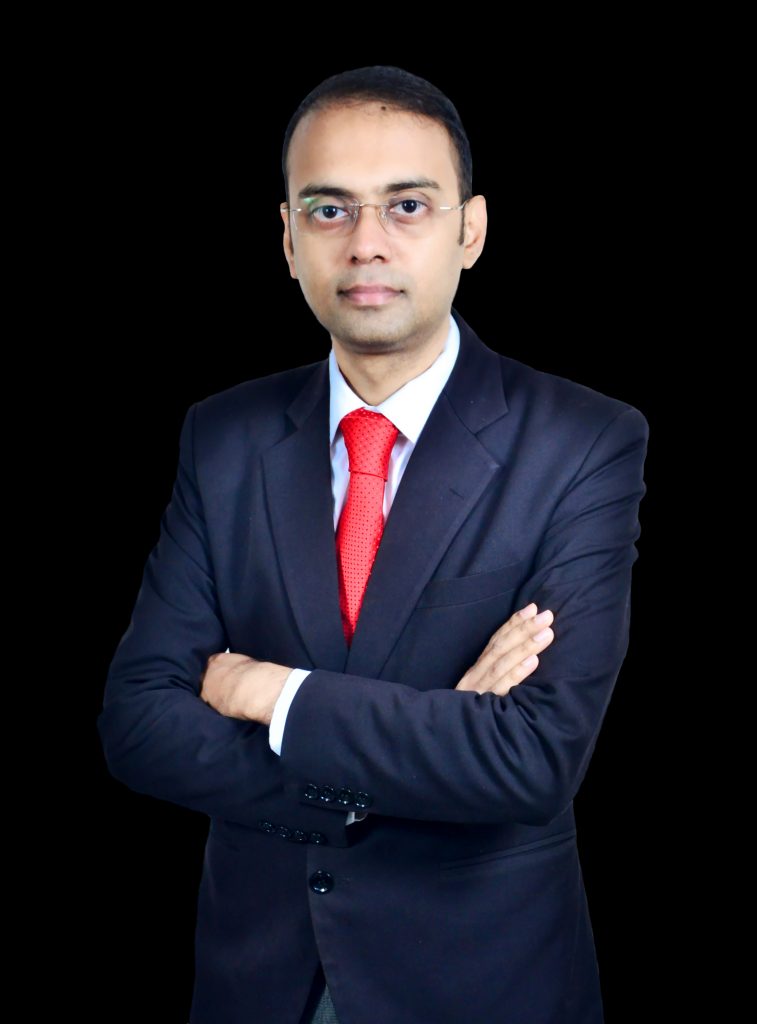This Interview has been published by Pragya Chandni and The SuperLawyer Team

Sir, could you please share with our readers how your journey in law began and evolved, leading you to specialize in commercial litigation, arbitration, and mediation?
I had intended to join the Indian Air Force as a reconnaissance pilot rather than practice law. The National Defence Academy in Pune required unaided 6/6 eye vision as a visual criterion and a passing grade in mathematics and physics in 12th standard as an educational requirement for admission to the Air Force wing. However, when I was in my early teens, I developed myopia and found that I struggled with mathematics. It implied that I wouldn’t even meet the eligibility criteria to take the entrance exam. At first, I was dejected, but as they say time is a great healer!
Years passed by and in my high school years, I developed an interest in civics and business studies which contained chapters on constitution, business law and ethics which propelled me to take up commerce stream in 11th standard and eventually I pursued undergraduate course in law. I took up internships with an independent counsel, LPO and law firms to understand different facets of law and organizational structure of lawyers. Initially, I worked on a bouquet of dispute resolution matters,
My work included inter alia real estate, testamentary, writ, arbitration, commercial, company, banking, labour and with the passage of time, I realised that my area of interest was in commercial litigation, arbitration and mediation.
You’ve achieved significant recognition, being enlisted by Forbes India and acknowledged by The Legal 500 and with experience across various industry sectors, from aviation to real estate, you’ve covered a wide array of legal areas. How do you manage to navigate and excel in such diverse practice areas?
I believe to excel in diverse legal practice areas, a thorough understanding of facts and legal issues, effective strategy and planning, and time management are crucial. Keeping abreast of recent updates through legal publications is also essential.
A successful lawyer should adopt a personable approach, comprehensively understanding the client’s business, and creatively using resources to address the legal issues. In my view, continuous learning and dedication to provide quality support to my clients drives my motivation to excel. In addition to this, a successful lawyer must imbibe the spirit of learning throughout one’s career and be able to creatively use its resources to fulfill the requirements of the client.
Your academic background includes an LLM in International and Commercial Law from King’s College London. How has your international education shaped and influenced you?
Pursuing a master’s degree in London on a scholarship gave me a great deal of exposure to a relatively different university pedagogy and to students from diverse backgrounds. The subjects were more advanced and in-depth than those I studied in the undergraduate law program and writing assignments and thesis helped me develop my research and analytical skills. Most of the assignments which were given to us revolved around practical legal issues compelling us to apply our legal knowledge in real-world settings.
Pursuing a degree abroad also made me become self-reliant and independent. I think when you face challenges independently, you develop resilience and confidence which benefits you in various aspects of life.
Interacting with fellow international students and locals enabled me to expand my network. Building friendships establishes a global alumni network, expanding your horizons and introducing you to diverse ideas and perspectives that may not have been part of your previous considerations.
From your independent practice to your current role at Fox & Mandal, you’ve navigated various professional settings. How has this journey contributed to your personal and professional growth, and what key lessons have you learned along the way?
Working in diverse work environments enabled me to understand the perspectives and challenges one goes through in its legal practice. For example, in an independent counsel setting, one needs to pay attention to the legal cases as well as take care of administrative tasks such as billing, operational requirements of the setup and HR aspects etc. However, in a law firm you might be spared from the administrative responsibilities and focus only on your work that has been assigned to you.
It is essential to know and understand your role in each professional setting. Once this is clear in your mind, it will be easier to handle and navigate the work and the expectations of your seniors and your team. Another thing to remember is that the learning in this profession never stops. The law, and the practice, is constantly evolving. You either evolve with it or be left behind.
In my short professional journey, I have learnt that one must be open to embrace new opportunities. It is only when you open yourself up, wonderful opportunities come your way to help you polish your skills and be instrumental in your professional and personal growth.
For law students and recent graduates aspiring to build a successful career, what advice would you give based on your own experiences and observations within the legal industry?
I believe law students and graduates should act like a sponge trying to absorb knowledge and information from wherever they receive, be it reading an article/newspaper/blog, or listening to the submissions advanced by counsels or observations made by the judge in a courtroom or discussion on a legal topic with colleagues over lunch.
I also believe that one must have the hunger and passion to excel in his/her field of specialization. In addition, one must also be honest towards the work assigned to them. When you give your all to the matter, whether you win or lose, it does not matter, what matters is – did I give my best? If your answer is yes, you will get immense gratification, there will be no regrets.
I’ve learned that being organized and having your case files at hand is crucial, whether you’re conducting your own study or research or briefing a senior counsel.
Another factor which is instrumental in building a successful career is having a mentor to offer you guidance and support when you require the most. I consider myself fortunate to have numerous mentors in my field like Mr. Sanjay Kumar Pathak, Mr. Kanishk Vardhan Shahi, Mr. Sonal Kumar Singh and Mr. Kunal Vajani who have shaped both my professional and personal development. My deepest gratitude to all of them.
Considering the evolving landscape of law and legal practice, are there specific trends or changes that you foresee impacting the field in the coming years? How should aspiring lawyers prepare for these changes?
The Covid-19 pandemic has not only showcased the feasibility of remote work but also emphasized the flourishing potential through effective work procedures and cutting-edge technologies, a concept previously unthinkable.
This shift emphasizes the increasing significance of technology in the legal sector. Whether you’re a law student or a legal professional, proficiency in working efficiently in virtual environments and familiarity with online collaboration tools is essential in the evolving landscape.
One trend which is already making its impact felt across the entire world is generative artificial intelligence (AI). AI is being increasingly used by law firms/companies nowadays for document review, legal research, contract analysis, communication etc. Aspiring Lawyers should make themselves acquainted with legal tech tools and understand how technology is transforming the way we practice law.
Furthermore, the use of blockchain technology and smart contracts is increasing across industries, including legal practice. Despite challenges, blockchain has revolutionized the world of technology and business. Law aspirants should familiarize themselves with this disruptive technology and understand its implications in a wide array of areas such as contract law, regulations, data privacy, intellectual property, and digital currencies.
Finally, drawing on your extensive experience, what advice would you offer to fresh law graduates who are just starting their professional journeys in the legal field?
The early years of this profession are the formative years and important for the fresh law graduates. I reckon in my early years of the profession; a senior advocate narrated the importance of commitment in the profession by quoting United States Supreme Court Justice Joseph Story – “The law is a jealous mistress and requires long and constant courtship. It is not to be won by trifling favors, but by lavish homage.” One needs to devote a lot of time to the subject and not be casual in the approach. Commitment and perseverance are inseparable and work hand in hand for success. As a practicing lawyer, I have realized that learning in this profession is perpetual. Embracing the idea of being a lifelong student is paramount, resonating with the timeless adage, “Once a student, always a student.”
Get in touch with Anshuman Gupta-
























